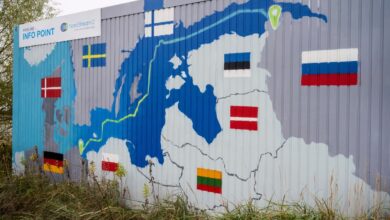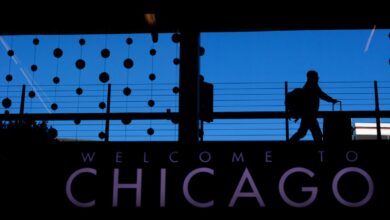Royal family warned against ‘insulting’ black people as St Lucia leg of royal tour begins

The royal family has been cautioned against “insulting” descendants of African people who were enslaved by Britain with glib glossing-over of past atrocities, as the Platinum Jubilee Royal Tour of eastern Caribbean island nations begins in St Lucia.
It comes as Prince Edward and his wife Sophie, the Countess of Wessex, arrived in the country to a red carpet guard of honour on Friday afternoon, following a last minute cancellation of the Grenada leg of their trip. They are also scheduled to visit two other nations, Antigua and Barbuda and Saint Vincent and the Grenadines.
Hours before the couple embarked on their trip, however, the Antigua and Barbuda Reparations Support Commission published a strongly-worded open letter criticising the royal family for past comments on slavery.
“It has become common for members of the royal family and representatives of the government of Britain to come to this region and lament that slavery was an ‘appalling atrocity’, that it was ‘abhorrent’, that ‘it should not have happened’,” the letter reads, referring to recent remarks by Prince William, Prince Charles and former prime minister David Cameron, years earlier.
“We hear the phony sanctimony of those who came before you that these crimes are a ‘stain on your history’.
“For us, they are the source of genocide and of continuing deep international injury, injustice and racism. We hope you will respect us by not repeating the mantra. We are not simpletons.”
The Platinum Jubilee tour was organised to mark the Queen’s 70-year reign, and comes shortly after Prince William and Catherine, the Duchess of Cambridge, were criticised for some elements of their recent Caribbean tour which harked back to colonial days.
Dorbrene E O’Marde, chair of Antigua and Barbuda Reparations Support Commission, said the Queen’s reign “has been so long and mind-numbing that persons in this country, some who now see themselves as political saviours, still cling to colonial doctrines and structures”.
“Our head of state has not been here, on this island for many years. The remnants of colonial rule have been hidden from her; she has not seen the recent magnificent efforts our leaders and people have made to clean the mess her British left here,” the chair said.
“That I find strange, especially in a country where people call for new elections if they do not see their parliamentary representative for a month! But then, these parliamentary representatives that we must see very regularly, swear allegiance to this absent Head of State (and her successors), not to us. This too I find strange,” he added.
Calling for the island nation to divorce the British monarchy, Mr O’Marde said: “The historical moment for the realization of our full sovereignty is upon us.
“Generations before ours fought for the abolition of British enslavement, others for the attainment of adult suffrage and the rejection of colonial rule, other for independence. It has been a long struggle.
“This is a call for its acceleration. It is our turn to complete the achievement of full political emancipation.”
Invoking a famous line from a speech by former Barbadian premier Errol Walton Brown, he added: “There is a telling African proverb which simply says ‘all things must end’. It is time to ‘stop loitering on colonial property’.”
Upon attaining independence in 1966, then Prime Minister Barrow had cautioned his countrymen against doing so.
The Molinere Underwater Sculpture Park, Grenada, was designed by British sculptor Jason deCaires Taylor and is thought to be a tribute to enslaved Black people.
Prince Edward and the Countess of Wessex were forced to cancel the Grenada leg of their tour of the Caribbean at short notice earlier this week.
Though an official explanation has not been given, a source told The Express: “There were concerns it was going to be very expensive for taxpayers in Grenada and they were only coming for eight hours.”
The decision was made following consultation with the government of Grenada and on the advice of the governor general, it is understood.
The changed plans come days after fresh details emerged regarding Britain’s role in the enslavement of black people in its former colony. Research commissioned by the Bank of England in the wake of Black Lives Matter protests has revealed that ownership of two plantations and 599 people in Grenada was transferred to the financial institution in the early 1770s.
Dorbrene E O’Marde





